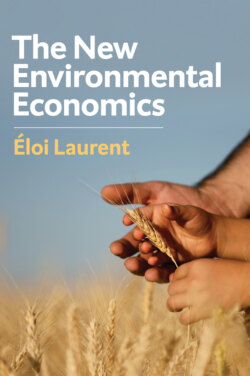Читать книгу The New Environmental Economics - Eloi Laurent - Страница 16
Notes
Оглавление1 Physiocratic ideas first emerged in the Journal d’agriculture, du commerce et des finances, which started its publication in July 1765. 2 Analyse de la formule arithmétique du Tableau économique de la distribution des dépenses annuelles d’une nation agricole (Journal de l’agriculture, du commerce et des finances, June 1766). 3 The term is here used in its classical sense, which in America today is much closer to “libertarians.” 4 Jean-Baptiste Colbert (1619–1683) was the controller general of finance under King Louis XIV of France and carried out a vast program of economic reconstruction that consolidated France’s dominance in Europe. 5 According to the mercantilist doctrine, what is won by one country is lost by the other (zero sum game) in international trade, so it is wise to conquer (if necessary by force) new outlets and close as much as possible his own market to maximize the gain resulting from trade. 6 Among them French historian Emmanuel Le Roy Ladurie. 7 Steffen et al. (2015). 8 Absolute advantage in trade is based on the lower unit cost of production compared to another country in the production of the same good and implies a specialization in the production of goods in which this advantage exists. Comparative advantage, as formulated by David Ricardo, implies that even if a country is the most efficient in all productive activities, it is necessarily relatively more productive in some than in others. Trade is thus no longer based on an absolute comparison with the productive efficiency of the exchange partner, but on a relative comparison, within the country itself, between the different productive aptitudes. It is this comparison that will decide international specialization. The country will specialize in the production of the good for which it is relatively or comparatively the best. 9 Mill (1848).10 Rodrik (2016).11 “Without unequal priorities and capacities, there would be no trade, no specialization, no gain from cooperation. In fact, there would be no economics and [all economists] would be busy selling insurance policies. In fact, not even, because there would be nothing to ensure!” in Welch (1999).12 Available at http://wir2018.wid.world/.13 Wilkinson and Pickett (2009).14 They expand their argument in a new book, Wilkinson and Pickett (2018).15 Stiglitz (2012).16 For a synthesis, see Ostrom (2010).17 See Laurent (2014).
